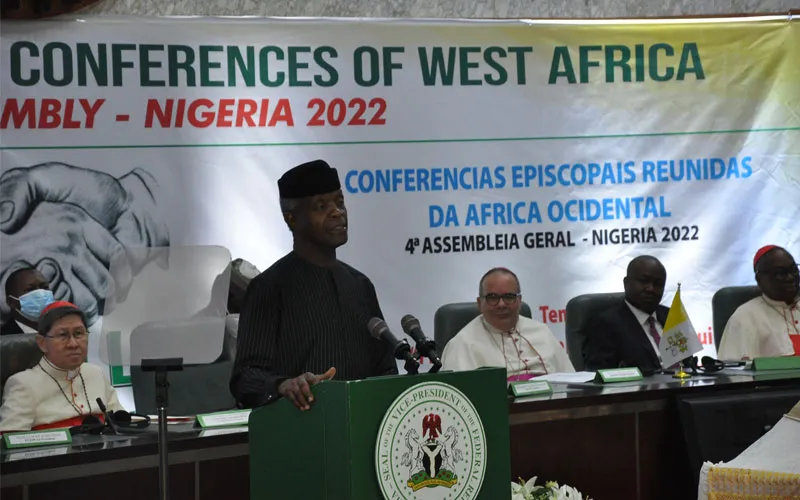He said in reference to the Encyclical Letter, “Peace cannot reign in our region if it does not first reign in our communities and countries.”
The 79-year-old president added, “Fraternity and social friendship are the ways to build a better, more just and peaceful world with the commitment of all people and institutions.”
He said that the Encyclical Letter contains ideas that are worth not only in securing human unity but in securing peace and security. He added that the ideas contained therein offer hope and renewal, as needed in the region at the current time of despair.
“If every human being possesses an inalienable dignity, if all people are my brothers and sisters, and if the world truly belongs to everyone, then it matters little whether my neighbors were born in my country or elsewhere,” he said.
President Buhari congratulated the church for standing out as a powerful voice for ecumenism all over the world, and added, “Indeed, as people of faith, we look upon the diversity of our people as a gift of providence not as a cause of conflict.”
(Story continues below)
He continued, “By offering concrete prescriptions on building brotherhood and sustainable peace anywhere, the Encyclical Fratelli Tutti rightly takes the position that this is not merely the business of governments and political institutions; it must also be anchored on our civil societies of which the faith communities are an important constituency.”
The Nigerian President went on to congratulate the Catholic Church for establishing a reputation of speaking truth to government of the West African country “with the highest prophetic traditions”.
“Over the years, the Church has modeled profound approaches in challenging the impunity of some state actors and errant power,” he said.
He added, “My Lords, I believe the times also call for speaking to the growing numbers of violent non-state actors, some propagating genuine causes but with mindless violence often leading to the destruction of lives and property.”
President Buhari said that the conference that is slated to end May 9 can foster both moral and spiritual consensus with an aim of promoting integration.
He said in reference to the Catholic Social teachings, “in doing so, I believe we can also look to the idea of the common good which is perhaps the cornerstone of Catholic Social Teachings.”
“The common good consists of our shared values about what we owe one another as citizens who are bound together in the same society – the norms we voluntarily abide by, and the ideals we seek to achieve,” the Nigerian President said in reference to the Catholic social teachings.
He said that the love for one’s neighbor is the greatest foundation of faith, a moral foundation of social welfare, social security for the poor and vulnerable; “schemes that ensure that none is left behind, and that no citizen in these blessed West African nations needs to go to bed hungry.”
He added, “We must prioritize universal healthcare, while also ensuring free and compulsory basic education. And that we must create the environment for millions of young and restless people within our borders to find good paying jobs and live decent lives.”
Silas Mwale Isenjia is a Kenyan journalist with a great zeal and interest for Catholic Church related communication. He holds a Bachelor’s Degree in Linguistics, Media and Communication from Moi University in Kenya. Silas has vast experience in the Media production industry. He currently works as a Journalist for ACI Africa.








